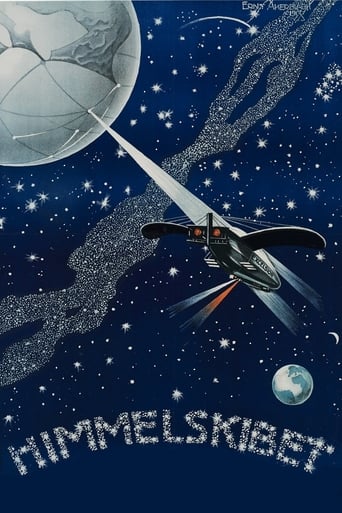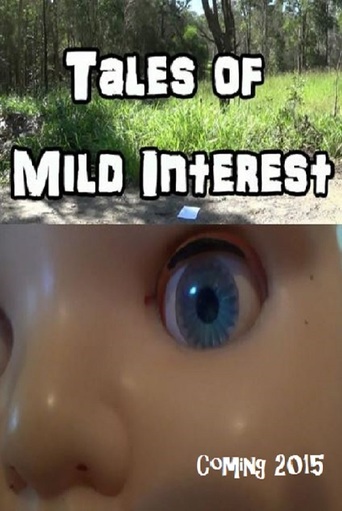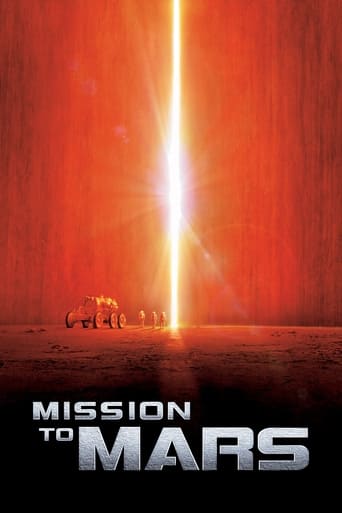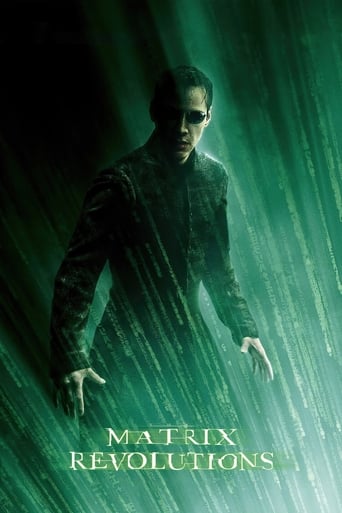

A Trip to Mars (1918)
The navy captain Avanti Planetaros is inspired by his astronomer-father to travel through outer space to reach other worlds. He becomes an aviator and, along with the young scientist Dr. Krafft, the driving force behind the construction of a space-ship. Despite oppostion from the mocking Professor Dubius, Planetaros gathers a crew of fearless men and takes off. During the long voyage, the crew becomes restless; a mutiny is narrowly avoided. Finally, they reach Mars and discover that the planet is inhabited by people who have reached a higher stage of development, free of diseases, sorrow, violence, sexual urges, and the fear of death. Avanti falls in love with Marya, daughter of the Prince of Wisdom, the head of the Martians. Marya shares his feelings and decides to return with him in order to bring the wisdom of the Martians to the backward Earthlings. (stumfilm.dk)
Watch Trailer
Cast


Similar titles
Reviews
Overrated and overhyped
It's funny, it's tense, it features two great performances from two actors and the director expertly creates a web of odd tension where you actually don't know what is happening for the majority of the run time.
This is a coming of age storyline that you've seen in one form or another for decades. It takes a truly unique voice to make yet another one worth watching.
The film never slows down or bores, plunging from one harrowing sequence to the next.
The early first days of the last century were times of great human curiosity about new technologies and the marvellous possibilities in the world of science; startling discoveries and new inventions set the world on the path to modernity. Unfortunately, this time of enlightenment also coincided with terrible conflicts and war, mankind at its worst. That human duality is very well reflected in the Danish film "Himmelskibet" (1918), directed by the great director Herr Holger-Madsen. It is a sci-fi film that includes a clear and sincere pacifist claim.The film tells of the eagerness and hardships of the sea captain Herr Avanti Planetaros, now reconverted into a space captain, and his project of a trip to Mars. Before embarking on his particular space odyssey, Captain Planetaros will have to bear the incredulity and the scorn of many conservative astronomers, especially Professor Dubius ( ah, what a proper name ) . In spite of such indifference and after many troubles and years of work, the spaceship "Excelsior" is finally constructed and Captain Planetaro's trip to Mars goes from dream to reality. Once on Mars, Captain Planetaros and his crew finds an advanced society in which peace is a way of life among its citizens. Filmed during the terrible years of WWI, "Himmelskibet" was obviously influenced by that devastating conflict that destroyed Europe during four miserable years. The message of peace and morality comes from the archaic but advanced Martian society which hopes to influence the Terrestrial civilization and wean it from such bad habits as violence, wine and canned meat. So, Martians will show Terrestrials the way to achieve a better society on Earth with pacifist messages reminiscent of those of religion and pious morality, and in stark contrast to the bad behaviour on earth which has wrought so much unhappiness through the centuries. The Martians hope their philosophy will be spread on Earth once Planetaros and his crew returns home.In these modern times in which the movies are full of technological magic, the special effects in "Himmelskibet" are primitive by comparison but are still full of naive charm. In fairness, longhaired and modernen youngsters should remember that Herr Holger-Madsen was also a very modernen youngster in those olden times, a director who was innovative, imaginative and influential.It must be said too that this Herr Graf thought that instead of journeying through space to Mars, Captain Planetaros may have travelled back in time to ancient Greece since the Martian citizens wear white and classical robes so reminiscent of the Hellene imaginarium ( Martians may look like Greeks but in comparison they are crashing bores ). However, in spite of its naive ways, the film effectively conveys its important message and one that is no less valid today where mankind still dreams of a world of peace and cooperation. Alas, even after Captain Planetaros' trip to Mars, the world seems not to have grown in wisdom.And now, if you'll allow me, I must temporarily take my leave because this German Count must make love to one of his Teutonic heiress and war with the other one.
Sci-fi is a rapidly changing genre. It loses impact even more rapidly than horror. Therefore it's virtually impossible to see a sci-fi movie from the past (from the pre-space period, i.e. late 50s) that isn't laughable in some sense. First serious sci-fi epics appeared in the very early 50s, and bearing in mind the first space yarn was filmed by Melies in 1902, we get about 50 years of sci-fi without the very basic concepts of space travel. Where The Trip To The Moon can be dismissed as a funny experiment, The Trip To Mars cannot. This is a serious film. The makers didn't know about weightlessness or the absence of atmosphere in space, plus about a hundred more things we know today. That was the period, when everybody was raving about the channels on Mars, so they naturally assumed there was intelligent life on that planet. Melies shows frogmen and other strange creatures on the Moon; in 1924 there appears the still popular tinfoil dress for Martians in Russian film Aelita. So, in between, we get the Egypto-Greek fairy-tale world of this film: wise old priests being wise; and virgins prancing around, praising virtue in the world, where virtue obviously is as normal and unnoticeable as metabolism. Enter the Earthlings, introducing death and sin. Well, nothing spectacular follows: they soon are "cured" and learn the ways of the righteous. This film is a total orgy of enjoyment. The double feature released by the Danish Film Institute (together with a disaster film from 1916, The End Of The World) boosts their usual superior quality. The Danes began storing and archiving their films very early, so you get a very clean second generation copy from a period when most of US films withdrawn from circulation went to the glue or comb factory. It's a pity this film with so many different locations isn't color tinted. The rather uninspired piano accompaniment, another trade mark of the series from the DFI, tends to grow a bit tedious too. But nevertheless, a remarkable film and something you can show to your friends without being afraid that they'll think you're a weirdo.
I saw this film from 1918 recently at our local Helsinkian film archive. It seems that the Danish Film Institute has reconstructed it in 2006 to celebrate the 100th anniversary of Nordisk filmcompany, which was one of the largest in the world in the early 20th century. I believe there are several copies with English translations circulating around Europe at the moment. I found the film fascinating and the trip to Mars well thought out. The plot line is certainly original, but I really don't want to reveal any more of it at the moment, as now the danger of spoiling things for you really exists ;-).The film is also available on DVD, query the Danish Film Institute (Det Danske Filminstitut) web pages at dfi.dk with 'Himmelskibet' to get more info.
I know I've seen a fair portion of this film as part of a series on rare silent movies, which was shown on TV around 25 years ago. It was beautiful and fascinating, and I yearned to see more of it, although most published literature states that it is 'lost'.As it is extremely unlikely that the film will ever see the light of day in its complete form, a spoiler warning is irrelevant, and the following is gleaned from published synopses more than from my personal recollection.It is an early space opera, concerning a team of explorers who visit the planet Mars, and encounter a race of peace-loving vegetarians (is there any other kind? Oh, sit down, Adolph!). They return to Earth with the high priest's lovely daughter, and the plea for peace is threatened only by one villain who is dealt with by what can only be described as an Act of God.Apart from George Melies' crazy moon explorer fantasies, this seems to be the first interplanetary adventure film in history, and from a country (Denmark) not noted for science-fiction films of any kind. Maybe they thought that they'd never do one better than this. We might giggle at the idea that the spaceship had propellers on its wings, but come on...we are still accepting lots of logistically improbable and impossible concepts in films of today. I hope this film does still exist somewhere. The fragments I've seen, and the material I've read, makes me yearn to experience the whole of this 90-year-old space opera.














